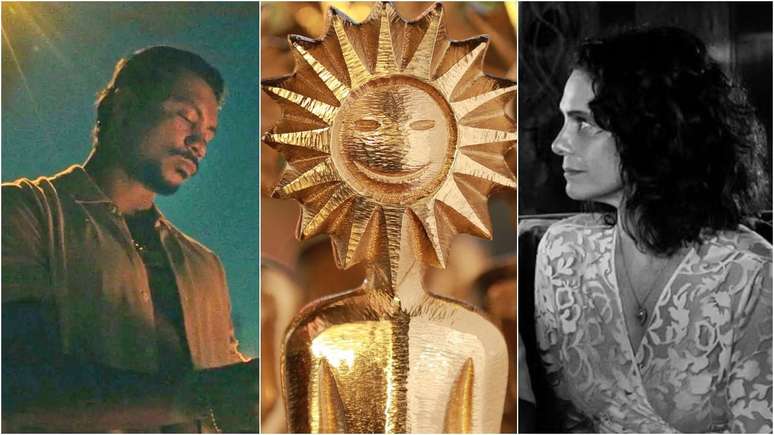With white hair, the actress plays a guerrilla in the film “Aos Nosso Filhos” and warns that “you can always go on”
In interviews promoting the launch of the suspect, which earned her the Kikito Award for Best Actress at the Gramado Festival last year, Glória Pires happily sported her gray hair. She was feeling very well, but she admitted she faced resistance at home. Marieta Severo is another with all white hair. “It’s a milestone, I assume my age, my white hair. Feminism is that too,” she muses.
Marieta, 75, talks to the journalist of Estadio in the Cultural Reserve, during the session for the guests of To Our Children, the feature film by Maria de Medeiros based on the play by Laura Castro and currently in cinemas. The reporter observes: white hair, but very well groomed. It does not work? “This is a man’s observation. Of course I take care of it, but there is no comparison with painting every 15 days. Any woman will understand that this is a liberation.”
MARIA AND MARIA. In 2013, when Marieta was invited to act, she had a busy schedule. She had to decline. Maria de Medeiros took over the role. On TV, Marieta made the Verdades Secretas miniseries. When there was the sequel, she again she had to refuse. She nominated Maria for the role. “I follow her, I follow her,” jokes the Portuguese actress, who has lived in Paris since she was 18. Maria, who is also a director, began to imagine a comedy film. There were only two actresses on stage. The film gained more people. “The figures mentioned only in the dialogues are now on screen. And the city: I really wanted to film Rio, as I see it.” And Maria adds: “At the same time, I was able to return the role to Marieta. This time she accepted, and it was a joy for all of us”.
Vera is a former guerrilla. She was tortured during the military dictatorship. She is a progressive woman, but who, on certain issues, she could be conservative, even reactionary. “The contradiction makes the character more real,” says Marieta. Vera runs an NGO that takes care of HIV-positive children. The issue of adoption is urgent. Tânia, Vera’s daughter, is married to another woman. She wants to have a child, but she doesn’t think about adoption. They try artificial insemination, which is proving complicated.
ROOTED MALE. Mother and daughter disagree, Tânia and her partner also argue. What will become of all these people? “I belong to a generation that has struggled to change the condition of women in society. We are very advanced, but machismo is still rooted in the minds of many men. Look at the femicides, which never stop happening”, warns Marieta. She then remembers: “My mother was an intelligent and cultured woman, she could have made a career, but she got married and started living for her family. I remember my father – ‘Lígia, I’m talking’. And her would have shut up. ” . Are you also shut up? “No, I’ve always been the rebel. My daughter Silvia says that today her generation is benefiting from the struggles of my generation.”
MATRIARCH. Marieta interrupts the interview two or three times to exchange messages with her nephew. She is a born matriarch – the baby from A Grande Família had a lot of her. “I like being surrounded by family. It’s always a strong point.” At the beginning of the pandemic, she went with part of this family to a mountain home. “I didn’t know, but I was saying goodbye to a phase in my life.” Marieta has long had a relationship with the actor and theater director Aderbal Freire-Filho. They always lived in separate houses, but Aderbal had a stroke and she Marieta welcomed him, setting up a facility to take care of him at home.
Marieta returns to the theater, on the screen. Co-founders, with Andréa Beltrão, of the Poeira Theater, in Botafogo, Rio, the two celebrated the house’s 15th anniversary in January two years late – due to the pandemic – with an interactive exhibition. “Bia Lessa did a great job,” she says. The Poeira has packed with the piece of the reopening, The viewer, based on the work of the Romanian Matei Visniec and played by four powerful women. In addition to Marieta and Andréa, also Renata Sorrah and Ana Baird. Novel in sight? “Something is coming, but Globo will announce it”. The contract is running out, but she has a friendly relationship with the network: “I’ve never done anything I didn’t want.”
The audience still remembers Noca de A Place in the Sun. In Lícia Manso’s novel, Marieta faced the prejudice against age, the lack of opportunity. There was a wise saying: “You can always go on, even when it seems you can’t.” A life lesson there
Source: Terra
Emily Jhon is a product and service reviewer at Gossipify, known for her honest evaluations and thorough analysis. With a background in marketing and consumer research, she offers valuable insights to readers. She has been writing for Gossipify for several years and has a degree in Marketing and Consumer Research from the University of Oxford.




![Such a great sun in advance: Elizabeth’s Terrible Accidental Victims … which Waiting for You Week until August 25, 2025 [SPOILERS] Such a great sun in advance: Elizabeth’s Terrible Accidental Victims … which Waiting for You Week until August 25, 2025 [SPOILERS]](https://fr.web.img6.acsta.net/img/d0/c4/d0c4d9256b5997c98008a65d7a43177e.jpg)

